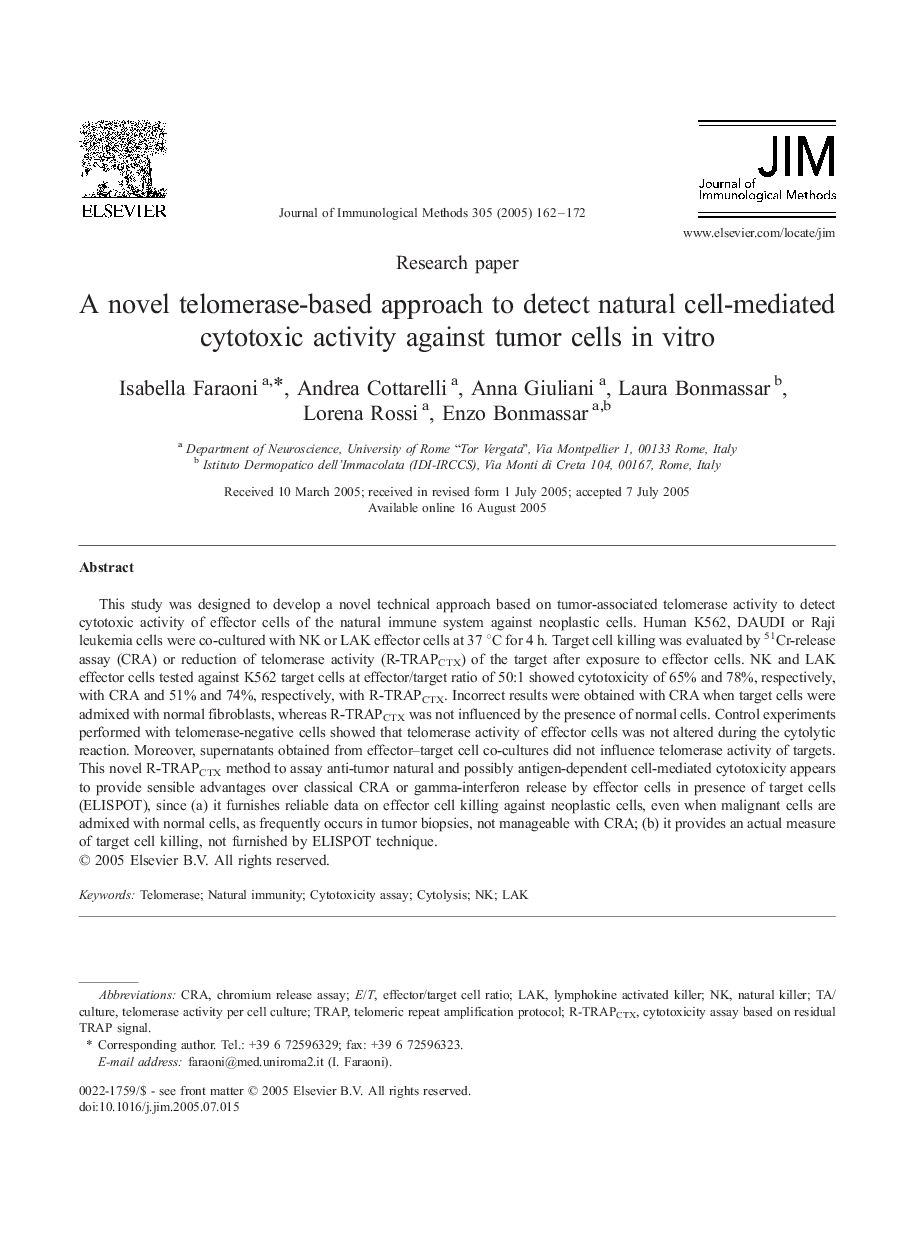| Article ID | Journal | Published Year | Pages | File Type |
|---|---|---|---|---|
| 10889382 | Journal of Immunological Methods | 2005 | 11 Pages |
Abstract
This study was designed to develop a novel technical approach based on tumor-associated telomerase activity to detect cytotoxic activity of effector cells of the natural immune system against neoplastic cells. Human K562, DAUDI or Raji leukemia cells were co-cultured with NK or LAK effector cells at 37 °C for 4 h. Target cell killing was evaluated by 51Cr-release assay (CRA) or reduction of telomerase activity (R-TRAPCTX) of the target after exposure to effector cells. NK and LAK effector cells tested against K562 target cells at effector/target ratio of 50:1 showed cytotoxicity of 65% and 78%, respectively, with CRA and 51% and 74%, respectively, with R-TRAPCTX. Incorrect results were obtained with CRA when target cells were admixed with normal fibroblasts, whereas R-TRAPCTX was not influenced by the presence of normal cells. Control experiments performed with telomerase-negative cells showed that telomerase activity of effector cells was not altered during the cytolytic reaction. Moreover, supernatants obtained from effector-target cell co-cultures did not influence telomerase activity of targets. This novel R-TRAPCTX method to assay anti-tumor natural and possibly antigen-dependent cell-mediated cytotoxicity appears to provide sensible advantages over classical CRA or gamma-interferon release by effector cells in presence of target cells (ELISPOT), since (a) it furnishes reliable data on effector cell killing against neoplastic cells, even when malignant cells are admixed with normal cells, as frequently occurs in tumor biopsies, not manageable with CRA; (b) it provides an actual measure of target cell killing, not furnished by ELISPOT technique.
Keywords
Related Topics
Life Sciences
Biochemistry, Genetics and Molecular Biology
Biotechnology
Authors
Isabella Faraoni, Andrea Cottarelli, Anna Giuliani, Laura Bonmassar, Lorena Rossi, Enzo Bonmassar,
